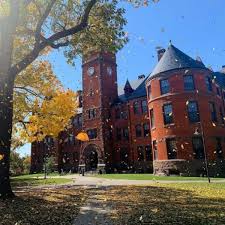 |
|
Faculty
Sort By: Rank | Alphabetical
- Donna Lynn Perry
Chairperson/Associate Professor, Anthropology - Matthew H. Amster
Professor, Anthropology - Amy Young Evrard
Associate Professor, Anthropology - Benjamin Peter Luley
Associate Professor, Anthropology - Kirby Farah
Assistant Professor, Anthropology
Academic Focus: Mesoamerican Archaeology
- Jonathan Amith
Research Scholar, Provost's Office - Christina McSherry
Adjunct Assistant Professor, Anthropology - Andrea Switzer
Academic Administrative Assistant, Anthropology
New: Please read the Anthropology Department’s Diversity, Equity, and Inclusion Statement.
Our distinguished faculty’s publications
-
Article A Terra Sigillata Revolution? Terra Sigillata Consumption in First-Century AD Roman Mediterranean Gaul by Prof. Benjamin Luley
Anthropology Department Mission Statement
The Department of Anthropology offers a broad, comparative, and locally informed approach to the study of human life in all its complexity, past and present. Anthropology is an essential component of the liberal arts curriculum, challenging students to understand the world and be global citizens while providing them with intellectual tools to engage in deep analysis of human diversity, inequality, and identity. Anthropology courses explore the richness and variety of humankind, revealing how cultural beliefs and practices set societies apart. These courses impart deep insight into local lived realities around the world and over time. This intensive, micro-level perspective enables students to develop analytical skills that enhance their understanding of the contemporary world, and insight into how anthropological knowledge can help to solve global problems. Students hone their cultural sensitivity, research skills, and ethical insight, and apply these skills to lived experiences in unfamiliar settings, as well as to hands-on research in communities and field sites outside the classroom. The major in anthropology prepares students for graduate study and careers in a wide range of fields, and for life-long learning in a complex and changing world.